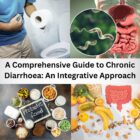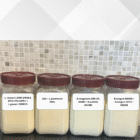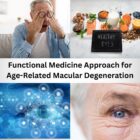Post-Surgery Recovery Strategies For Big or Small Surgery
Surgery, whether minor or major, is a significant event that puts immense stress on the body. With 15 million surgeries performed annually in the U.S., studies show that up to 40% of patients face delayed healing or complications due to inflammation, poor nutrition, or inadequate post-care. The body’s natural healing process is remarkable but benefits greatly from proactive support.
Research reveals that targeted interventions like proper hydration, balanced nutrition, and immune-boosting supplements cut recovery time by nearly 50% while improving wound healing and reducing inflammation. This guide offers practical, evidence-based strategies to help you navigate the critical post-surgery phase, empowering your body to heal faster and more effectively. Whether you’ve undergone a minor procedure or a major operation, these tips will set you on the path to a smoother, healthier recovery.
Pre-Surgery Preparations
Proper preparation before surgery creates a strong foundation for recovery. Two critical steps include:
Discontinue Certain Supplements
Supplements like fish oil, curcumin, and bromelain, while beneficial in normal circumstances, thin the blood and increase the risk of excessive bleeding during surgery. It is essential to stop these supplements at least a week before surgery. Always consult with your doctor before making changes to your supplement routine, as they provide personalised advice based on your medical history and the type of surgery.
Boost Immune Function
Strengthening the immune system helps the body combat potential infections and promotes faster healing. Focus on key nutrients like Vitamin D and Vitamin A to support immune modulation and tissue repair. Zinc plays a role in reducing inflammation, while probiotics enhance gut health, a key component of overall immunity. Incorporating these nutrients through diet or supplements (as advised by a healthcare provider) prepares your body to handle surgical stress.
Immediate Post-Surgery Recovery Strategies and Care (First Week)
The first week after surgery is critical for recovery, as the body begins the process of healing and regaining strength. During this phase, focusing on supportive practices help manage pain, reduce inflammation, and prevent complications. Here are four key strategies for optimal post-surgery care:
- Prioritize Liquid Nutrition
Liquid nutrition is easier to digest and supplies essential nutrients for healing. Include green juices rich in antioxidants, protein smoothies to rebuild tissues, and nutrient-dense soups or pureed stews. These options are gentle on the digestive system and provide hydration, vitamins, and minerals vital for recovery. - Optimize Sleep for Healing
Sleep is essential for tissue repair and immune function. Create a restful sleep environment by using earplugs, blackout curtains, or a white noise machine to minimize disturbances. If sleep is elusive, melatonin supplements often help regulate the sleep-wake cycle, but consult your doctor before use. - Manage Stress
Stress hinders recovery by suppressing the immune system and prolonging inflammation. Engage in relaxing activities like guided meditation, deep breathing exercises, or watching uplifting content. These practices help reduce cortisol levels and promote a calm state conducive to healing. - Address Constipation
Post-surgery constipation is common due to medications and reduced activity. Stay hydrated and consider magnesium supplements like citrate or malate to soften stools. Incorporate prebiotic fibers (e.g., oats, bananas) and fermented foods (e.g., yogurt, kimchi) to support gut health and regular bowel movements.
Enhancing Wound Healing
Wound healing is a multifaceted process that requires optimal nutrition and physiological support. Addressing specific nutritional and biological factors significantly speeds up recovery and improves the quality of healing. Here are four evidence-based strategies to enhance wound healing:
- Increase Collagen Intake
Collagen is essential for skin elasticity and wound repair. Consuming collagen-rich foods such as bone broth, poultry skin, or fish provides the amino acids needed for tissue rebuilding. For convenience, collagen peptide supplements are an excellent option, as they are easily absorbed and easy to add to drinks or meals. - Boost Vitamin C Levels
Vitamin C is a critical nutrient for collagen synthesis and skin integrity. Taking 500 mg or more daily helps facilitate collagen deposition and supports the immune system in combating infection. Incorporate vitamin C-rich foods like citrus fruits, bell peppers, and strawberries into your diet for additional benefits. - Optimize Vitamin D
Vitamin D plays a pivotal role in tissue and bone healing. Aim to maintain blood levels of 25-hydroxy vitamin D at 60–70 ng/ml for optimal recovery. Supplementation or exposure to sunlight helps achieve these levels, but a blood test is recommended to determine specific needs. - Support Oxytocin Production
Oxytocin, often called the “love hormone,” reduces inflammation and promotes tissue repair. Consuming L. reuteri yogurt has been shown to boost oxytocin release. This unique probiotic not only aids wound healing but also improves overall well-being by reducing stress
Nutritional Focus for a Long-Term Post-Surgery Recovery Strategies
Long-term recovery after surgery requires sustained nutritional support to rebuild strength, enhance immunity, and maintain overall health. Proper dietary choices and mindful eating habits significantly accelerate recovery and prevent complications. Here are three practical strategies to focus on nutrition during the recovery phase:
- Eating Hygiene: Mindful eating practices improve digestion and nutrient absorption. Chew your food thoroughly to ease the workload on your digestive system and avoid drinking liquids during meals to prevent diluting stomach acids. Eating slowly also allows your body to register fullness, preventing overeating and aiding gastrointestinal health. This practice promotes better digestion and optimises nutrient uptake, essential for recovery.
- Balanced Meal Composition: Each meal should emphasise protein, vegetables, and healthy fats, which are crucial for tissue repair, inflammation reduction, and energy restoration. Protein supports muscle rebuilding, while vegetables provide fibre and essential micronutrients. Healthy fats like avocado, olive oil, and nuts help in hormone production and healing. Keep fruit and starches as secondary options to prevent blood sugar spikes or digestive discomfort, allowing your body to prioritise healing processes.
- Fortified Liquid Meals: Liquid meals are both nutrient-dense and easy to digest, making them ideal for recovery. Consider incorporating medical-grade options like Thorne MediBolic or similar fortified shakes. These provide a concentrated dose of vitamins, minerals, and protein without taxing your digestive system. They work well as breakfasts or snacks, offering convenience and targeted nutrition.
- Increasing Protein Intake: Increasing protein intake is essential for effective post-surgery recovery. Protein provides the building blocks, essential amino acids needed for tissue repair, wound healing, and immune resilience. It supports collagen synthesis, which is critical for rebuilding skin, muscle, and connective tissue. Additionally, a protein-rich diet helps stabilise blood sugar levels, reducing the risk of inflammation and promoting faster, more efficient healing.
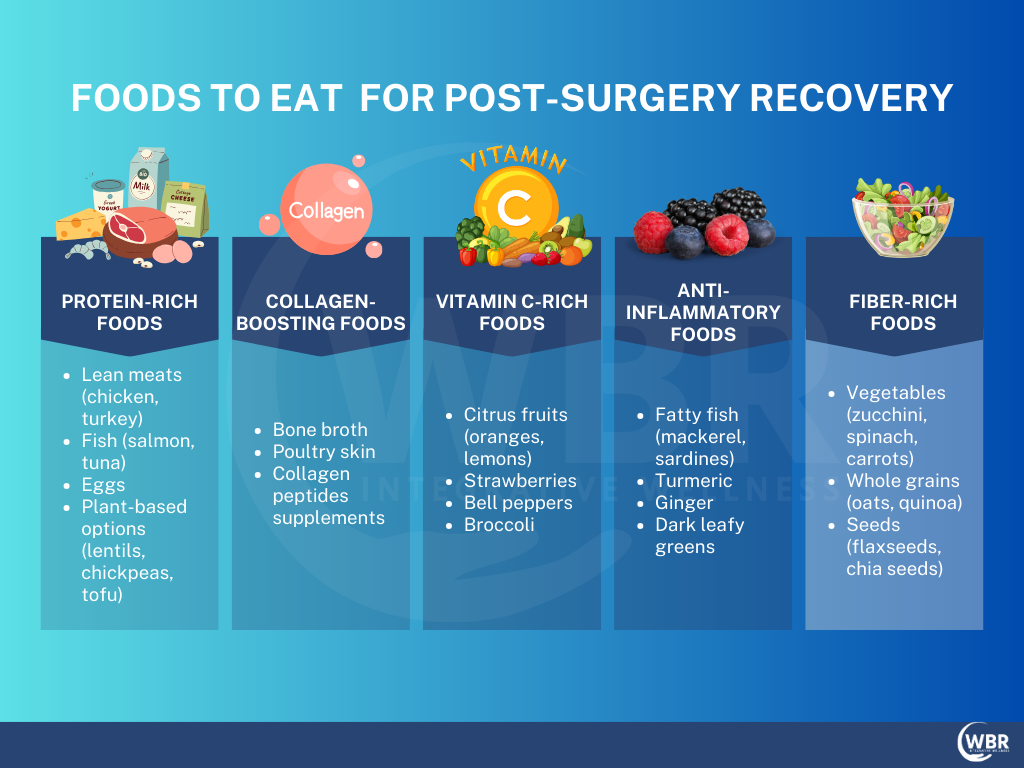
Addressing Digestive Health: Post-Surgery Recovery Strategies
Digestive health plays a vital role in post-surgery recovery as a healthy gut supports nutrient absorption, immune function, and overall healing. Surgery, anesthesia, and medications disrupt the gut microbiome and compromise digestion, making it essential to focus on restoring and enhancing gastrointestinal health. Here are four effective strategies:
- Probiotic Support
High-potency probiotics help restore gut flora disrupted by antibiotics or stress from surgery. These beneficial bacteria strengthen the gut barrier, reduce inflammation, and enhance overall digestive function. - Prebiotic Fibers
Prebiotic fibers, found in vegetables, seeds, and legumes, serve as food for healthy gut bacteria. Incorporating these foods into your diet promotes microbial diversity and balances the gut ecosystem, aiding in recovery. - GI Healing Supplements
Supplements which contain mucilaginous herbs such as slippery elm and marshmallow root, soothe the digestive tract, reduce inflammation, and repair the gut lining. - Enzyme Support
Digestive enzymes or apple cider vinegar improve digestion by breaking down nutrients more efficiently, reducing bloating, and enhancing nutrient absorption. These are particularly helpful if digestion feels sluggish post-surgery.
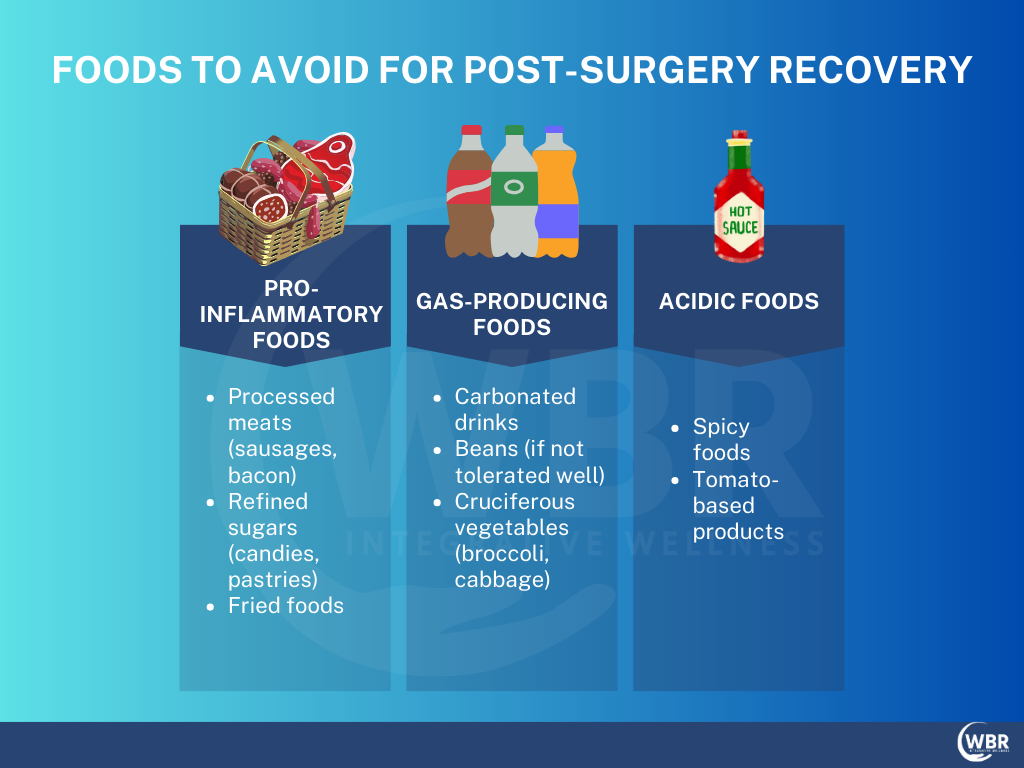
Best Prebiotics for Post-Surgery Recovery Strategies
Prebiotics are non-digestible fibers that feed beneficial gut bacteri, play a crucial role in optimizing immune function, healing, and detoxification post-surgery. Here’s how specific prebiotics support your recovery journey:
- Psyllium Husk: Rich in soluble fiber, it improves bowel regularity post-anesthesia and supports gentle detoxification, helping prevent constipation—a common issue after surgery.
- PHGG (Partially Hydrolyzed Guar Gum): A gut-friendly fiber that promotes beneficial bacteria without gas or bloating, aiding in immune regulation and intestinal healing after surgery.
- FOS (Fructooligosaccharides): Encourages the growth of key gut flora, enhancing nutrient absorption and reducing systemic inflammation during recovery.
- GOS (Galactooligosaccharides): Stimulates butyrate production, which strengthens gut lining, reduces infection risk, and supports tissue repair.
Incorporating these prebiotics can accelerate healing, support immunity, and promote smoother post-surgical recovery from the inside out.
Probiotic Strains for Post-Surgery Recovery
- Lactobacillus rhamnosus GG (LGG)
One of the most researched strains for immune support and gut barrier repair. Helps prevent post-surgical antibiotic-associated diarrhoea and reducesthe risk of infections. - Bifidobacterium lactis BB-12
Supports colon health, modulates immune response, and reduces inflammation. Effective in restoring microbiome balance disrupted by surgical stress and medications. - Saccharomyces boulardii
A beneficial yeast probiotic known for preventing antibiotic-associated diarrhea and Clostridium difficile infections. A key ally when antibiotics are part of surgical care. - Lactobacillus plantarum 299v
Enhances mucosal immunity, reduces intestinal permeability, and supports nutrient absorption, promoting faster recovery and tissue healing. - Bifidobacterium breve
Promotes anti-inflammatory short-chain fatty acid production and supports gut-brain recovery, especially important in major surgeries requiring anesthesia.
Targeted Nutrients to Soothe Inflammation and Accelerate Healing
- Zinc with Vitamin C: Zinc plays a key role in wound healing, immune defence, and tissue repair, while Vitamin C supports collagen formation and reduces oxidative stress. Together, they accelerate healing and reduce the risk of infections post-surgery.
- L-Carnitine: L-Carnitine enhances cellular energy production, supports muscle recovery, and reduces oxidative damage, especially helpful in regaining strength and minimising fatigue after surgical procedures.
- Amino Acids: Amino acids like glycine, proline, and lysine are essential building blocks for collagen and connective tissue repair. They help restore muscle and skin integrity, speed up wound closure, and reduce inflammation.
- SPMs (Specialised Pro-Resolving Mediators): SPMs actively resolve post-surgical inflammation without compromising immune function. They promote faster resolution of swelling, support tissue regeneration, and help prevent chronic inflammatory complications.
Liver and Medication Support
For Those On Post-Surgery medications: Post-surgery medications strain the liver, which is responsible for metabolizing drugs and clearing toxins from the body. To support liver health and enhance its detoxification capabilities, consider multi-nutrient liver support blends. These supplements often include ingredients such as milk thistle, NAC (N-Acetyl Cysteine), and alpha-lipoic acid, which protect liver cells, promote glutathione production, and improve toxin elimination. Pairing these blends with a nutrient-dense diet and proper hydration helps minimize liver stress, improve recovery, and optimize the body’s ability to process medications effectively. Always consult your healthcare provider before starting any supplements.
Emotional and Lifestyle Adjustments
Post-surgery recovery isn’t solely physical—it requires emotional and lifestyle adaptations to foster holistic healing. Addressing emotional needs and creating a supportive routine significantly enhances recovery outcomes.
- Address Emotional Eating
It’s common to turn to food for comfort during stressful periods. However, emotional eating leads to nutrient-poor choices that hinder recovery. Instead, engage in hobbies, practice mindfulness, or explore journaling to process emotions. Activities like guided meditation or breathing exercises build resilience, reducing the urge to rely on food as a coping mechanism. - Gradual Return to Routine
Rushing back to daily responsibilities or intense physical activity delays recovery and increases stress. Listen to your body and prioritize rest. Resume tasks and exercise gradually, ensuring your healing is complete before taking on significant mental or physical exertion. This balanced approach safeguards your progress and prevents setbacks.
Conclusion
Recovering from surgery requires a proactive, holistic approach that addresses nutrition, immune function, emotional well-being, and lifestyle adjustments. By incorporating these evidence-based strategies, it becomes easier to accelerate healing, reduce complications, and restore balance to your body. Remember, every recovery journey is unique—listen to your body, seek professional guidance, and take the time needed to heal fully. With patience, proper care, and a focus on wellness, it becomes easier to emerge from surgery stronger and more resilient



